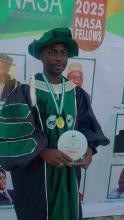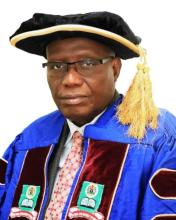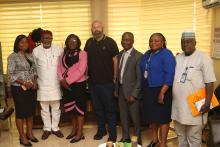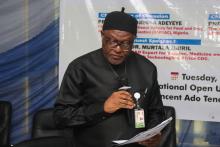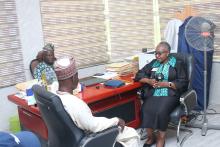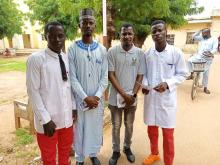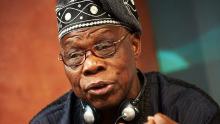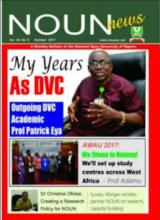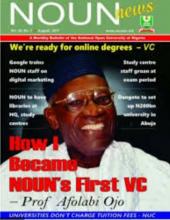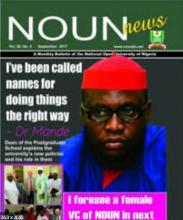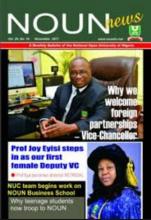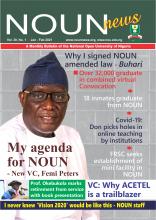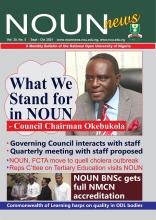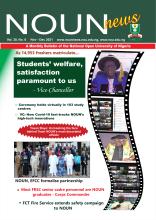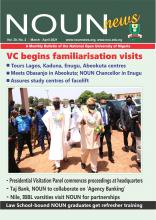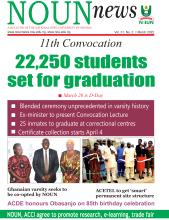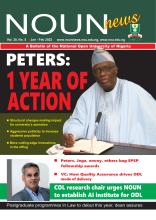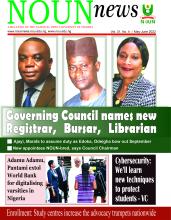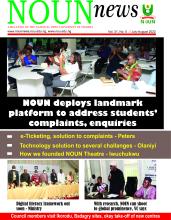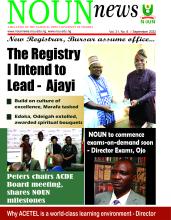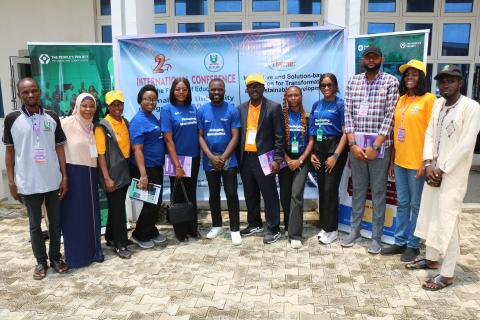
Education must evolve beyond being a mere repository of knowledge to become a solution-driven force for innovation and sustainable development, the Vice-Chancellor of the National Open University of Nigeria (NOUN), Prof. Olufemi Peters, has said.
Represented by the Deputy Vice-Chancellor (Academic), Prof. Chiedu Mafiana, Prof. Peters made this assertion at the opening ceremony of the 2nd International Conference of the Faculty of Education, a 3-day event themed: “Innovative and Solution-Based Education for Transformation and Sustainable Development,” held at the NOUN headquarters, Abuja.
He noted that with the world’s current realities “we must become architects of innovation that transcend boundaries and transform lives.”
Highlighting the role of emerging technologies such as artificial intelligence, virtual and augmented reality, gamification and data-driven personalisation, the Vice-Chancellor affirmed that NOUN, as one of Africa’s largest open and distance learning institutions, is uniquely positioned to lead this transformation.
He urged participants to use the conference as a laboratory for ideas, building bridges between research and classroom practice, policy and reality, innovation and evidence.
“Let the outcomes of this gathering go beyond conference materials to become actionable strategies that make education the most powerful and sustainable tool for transformation across our nation and the continent,” Peters added.
While delivering his lead paper, former NOUN Vice-Chancellor, Prof. Olugbemiro Jegede, commended the faculty for taking the lead in scholarship and innovation within NOUN, describing the conference theme as both timely and future-focused.
He traced the evolution of ODL from its earliest form as correspondence education to today’s intelligent, flexible, technology-driven learning systems, noting that while emerging tools such as artificial intelligence, virtual reality, gamification, and blockchain have greatly enhanced teaching and learning, they also come with significant challenges.
Prof. Jegede highlighted the seven generations of ODL technologies, from print-based and multimedia integration to internet-based learning, social media, and now AI-driven personalisation arguing that although learners are quick to adopt digital platforms, academia has yet to fully integrate tools like social media, virtual offices, and the Internet of Things into mainstream educational practice.
He also identified key challenges facing ODL in Nigeria, including the digital divide, limited access to education for an estimated 20 million out-of-school children, loss of human connection in a tech-driven world, inadequate professional development for educators, and outdated national education policies that fail to integrate emerging technologies.
While calling for a rethink of Nigeria’s education policy to embrace 21st-Century realities, Prof. Jegede urged institutions to foster inclusive education, community engagement, sustainable technology ecosystems, and lifelong learning pathways to ensure that no learner is left behind.
Earlier in his welcome remarks, dean of the faculty, Prof. Bamikole O. Ogunleye, underscored the central role of technology in shaping human progress.
He said that “we must be intentional and deliberate in living, working, and innovating for better livelihoods particularly in education.”
Prof. Ogunleye said throughout history, transformative thinkers and innovators have often been regarded as “troublemakers,” but emphasised that education must boldly embrace change in areas such as curriculum integration, active pedagogies, sustainable projects, eco-friendly policies, and community engagement.
“Change is always hard at the beginning, messy in the middle, but gorgeous at the end. We must not drive change for the sake of change, but pursue encapsulated change that leads to true transformation,” he added.
The dean also expressed gratitude to the Vice-Chancellor, Prof. Olufemi Peters, for his unwavering support, the National Teachers’ Institute (NTI), Kaduna for its sponsorship and future partnership in hosting subsequent conferences, as well as donors, partners, and the Local Organising Committee for their contributions to the success of the event.
- Log in to post comments
- 126 views

